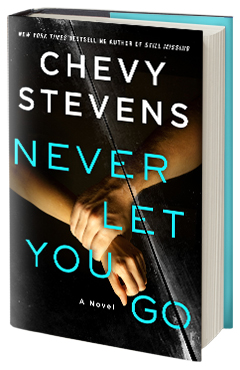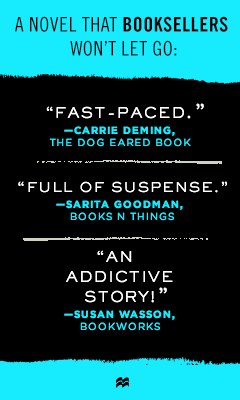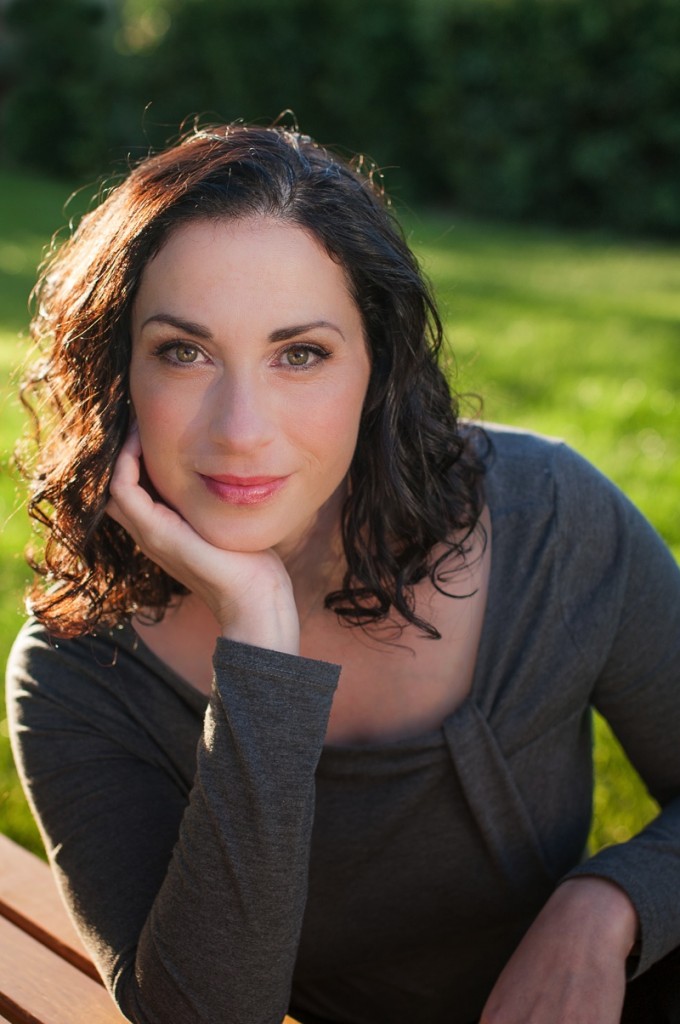Never Let You Go
by Chevy Stevens
Lindsey is 19 years old when she falls for Andrew Nash, a charming man beloved by her friends and family. But over the years of their marriage, Andrew becomes more and more controlling, isolating Lindsey from those who love her, convincing her that she is the cause of his problems, making her doubt her own strength and threatening her with physical violence. With no resources, a young daughter to protect and an increasing loss of control over her existence, Lindsey is unsure of what to do--terrified of what will happen if she tries to leave Andrew, but just as terrified of what will happen if she stays.
Eleven years later, Lindsey and her daughter, Sophie, are living a quiet and independent life in the small town of Dogwood Bay, off the western coast of Canada. Andrew is in jail, caught driving drunk after he hit--and killed--another woman and publicly threatened to kill Lindsey. Their seaside town is accessible only by float plane or ferry, and Lindsey feels relatively safe. She has built a housecleaning business to support her small family; she has a boyfriend, a devoted daughter and a network of friends who support her. She is as happy as she could hope to be.
Until the terror of her past comes crashing into her present. While cleaning a client's house, Lindsey finds a window left open, a dead budgie in the freezing cold and, later, the contents of her purse rearranged; she's distinctly aware of another presence in the residence with her. Her mind immediately goes to Andrew: "He's going to make me pay for every year he spent behind bars."
The shock of fear that this first encounter sends through Lindsey radiates off the page and lingers throughout the rest of Never Let You Go, the sixth novel from bestselling author Chevy Stevens (Still Missing, That Night). As the opening chapters of the novel alternate between Lindsey's past and present, the story of her marriage to Andrew--and its violent dissolution--forms a foundation of fear that builds as Andrew's presence in Lindsey's new life becomes more and more apparent.
Lindsey runs into Andrew in the bank parking lot; she finds her e-mails marked as read before she's seen them; she discovers her celebrity gossip magazines (Andrew always hated those) in the trash in her bathroom. Her mail is opened and lined up on her desk, her keys are moved, a book is laid open by her bathtub. The actions are subtle and, individually, seemingly harmless--making Lindsey all the more convinced that they are the work of Andrew, determined to terrify her, to threaten her, to drive her to desperation as he toys with her fear.
This subtlety is, in some ways, a new direction for Chevy Stevens, whose early works are marked by a dark and twisted kind of violence. But that's not to suggest that the more reserved terror of Never Let You Go is at all a disappointment; instead, the hooks that sink in from page one and dig ever deeper through a thrilling and unanticipated end are all the more frightening for their invisibility. There is nothing hidden in dark corners, nothing to jump out in the night--only the fear that lurks in Lindsey's mind, and in Sophie's, and in their sometimes desperate attempts to protect each other from an unseen but all-too-present threat.
The subtlety of Never Let You Go, too, gives Stevens room to explore larger themes in the context of a psychological thriller: the intricacies of a controlling, abusive relationship; the strength of the bond between a mother and her daughter; the urge not only to survive, but to thrive, in the aftermath of a horrible crime--and perhaps most centrally, the question of evil. "Your father wasn't evil," Lindsey tells Sophie. "He was just broken." Broken suggests the possibility of fixing, though, which is a thought Lindsey is not willing to entertain. Stevens leverages this particular point to great effect, exploring the question of how much a person can truly change over time in Andrew, who is indeed a broken man--if a questionably evil one.
These explorations, though, never slow the pacing of Never Let You Go, which pushes on relentlessly from the first page toward a thrilling, unexpected--and yet entirely believable--conclusion. Stevens's previous works have solidified her place as a master of suspense; in Never Let You Go, readers can look forward to a different approach to that suspense, but with the same satisfying thrill of the unexpected from start to finish. --Kerry McHugh









